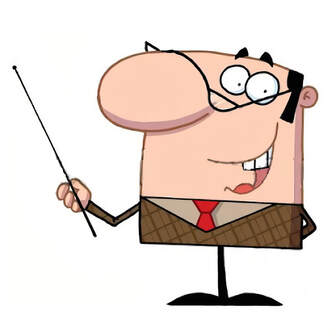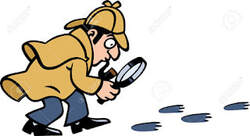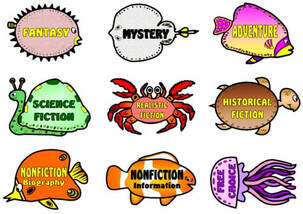 In last week’s blog I featured questions that should never be asked of an author. I received some comments that I was being a trifle sarcastic, harsh even, as people were simply being curious. So, to restore some balance, here are some questions, with my answers, that I don’t mind being asked. I must stress that these are my opinions and other authors may answer these questions differently. When it comes to writing, there are few hard and fast rules, there is only what works for the writer.  1. What is the major challenge for you as an author? Coming up with a fresh approach to a story. Since Homer wrote the Odyssey just about every story there is to tell has been told many times over, so for the modern author there is little they can do except find a new way to tell an old story. There are really only 7 plots for stories, and even then there are similarities and cross overs, so each author has to take one of those seven plots and find a new angle. Perhaps the best modern example is the Harry Potter books by J K Rowling. Stories about wizards are nothing new (Merlin, Gandalf), neither are stories of boarding schools (Billy Bunter, Mallory Towers), but a story about a boarding school for wizards, that was something new.  2. How do you work out your plots? The truth is that I don’t really know. I have an idea for a story and then I start to write. What happens is often as much of a surprise for me as it is, I hope, for the reader. Of course, I have a general idea of where the book is going to end up, but not much of an idea of how it will get there. My Magi sci-fi series is essentially a quest. But quests that go straight from A to B aren’t very interesting. Imagine if Frodo Baggins and Sam Gamgee had gone straight from the Shire to Mount Doom, it would have been a pretty dull story and you would never have heard of J R R Tolkein. So they have many adventures along the way and meet many other characters. The same applies in my Magi series. Each of the nine books is a story in its own right before An Kohli, my protagonist, can complete her quest. If she didn’t it wouldn’t be a series of books, it would be just one very short book. Sometimes I will create a situation and not know why. I don’t worry about it at the time, because I can always edit it out if I don’t need it or it doesn’t work, but I often surprise myself there as well. In “The Warriors: The Girl I Left Behind Me” I introduced a character called Sergeant Major Smith, whose negligence leads to the death of a soldier on a rifle range. I didn’t know why I had done it, but it worked as far as it went. Later in the book, however, I wanted to set up another tragedy and found that I had unwittingly created the character who would enable the tragedy to come about. So, my plots often surprise me as much as they surprise everyone else.  3. How do you create your characters? It’s a bit like building a house. I start with the foundations and work my way up to the roof, before decorating and laying the carpets. The first thing I decide is what sort of a character they are. I don’t like wholly good or wholly bad characters, so I tend to think of them in shades of grey. In The Magi I created a character called Den Gau. He is a bit of a coward, but when the chips are down he surprises himself and everyone else by stepping up to the mark. These are the sorts of characters I find interesting and I hope readers do as well. Next I usually write down a physical description: gender, height, build, hair colour, physical appearance, style of dress etc. That gives me a framework on which to hang everything else. In writing sci-fi this can be fun, because I can let my imagination run wild. Then I need to understand what motivates the character. One of the things I dislike about much modern fiction is that the antagonist, the baddy, is usually such a one dimensional figure in terms of their motivation. We are supposed to believe that they are bad just because we are told that they are bad. I don’t believe that people are born bad, so I have to understand what made them that way. To portray all bankers as being greedy, for example, is as shallow as a puddle in the summertime, so I need to know what made my greedy banker so greedy. After that I will start to layer on some character traits, kindness or cruelty, bravery or cowardice, pride or humility. As with motivation, it isn’t one size fits all. These are polar opposites on discrete axes and most people sit somewhere in between, so it is up to me where along these axes each character sits. For my character of An Kohli I have given her a very strong code of ethics, but if she stuck rigidly to them I wouldn’t be able to make some of the plot work, so I have to let her bend her own rules from time to time. But how far can I let her do that before she fails to be believable as an ethical character? Not everything I have described will make it onto the page, but I have to understand it all if I’m to create believable characters and this is especially true if they are recurring characters in a series of books, because readers who follow the series will expect the characters to remain consistent in their behaviour. We would never accept it of James Bond, for example, if he suddenly started to take bribes to walk away.  4. Are there any fiction genres you won’t attempt to write? The sorts of books I enjoy writing are the same as I enjoy reading. I’m very much action adventure oriented, so that is what I write. I may locate my stories in outer space, but they are still essentially action adventures. I won’t, therefore, try to write romantic fiction. There is nothing wrong with it as a genre, but I don’t read it and I don’t think I would be good at writing it. The same applies to erotica. Most erotica is actually pretty boring and I’m not sure why it sells so well. For me it sits in the same zone as voyeurism, but without the risk of being arrested for being a peeping tom. I wouldn’t write a western for the simple reason that there is a lot of specialist knowledge required to write it well. Most western fans know their subject inside out and they will spot a faker at a hundred paces. I am a lover of historical fiction but the demands of research for that are considerable. I discovered this when I set out to write a biography of my father’s war service. However, once I had done the research for that, I found I had enough material for a whole series of books set during World War II.  5. How do you go about editing your books? Any mother will tell you that there is no such thing as an ugly baby and writers feel much the same about their books. To go back and try to judge a book for oneself after taking between 3 to 6 months to write it is very difficult, but it must be done. Any author who is struggling to find a publisher is probably struggling because they haven’t been critical enough in their editing. I start with the simple things: typos, spelling, punctuation and grammar. I won’t get everything right even then. You can spot a self-published book from a hundred miles because it will be littered with simple errors that the author failed to spot. The next step is to take each scene of the book and try to assess whether it really works. This is the difficult part, because self-criticism is so hard. Some authors go the other way and slash and burn their manuscripts, practically destroying the book and having to go back and pretty much re-write the whole story. To avoid this, I do an initial critical edit of each chapter after I complete it, so I’m not wasting lots of time. There are two critical elements I try to eradicate. The first is “show vs tell”. Think of this as the difference between watching a football match live and listening to a match summary from Chris Kamara. In “show” the author paints a picture of what is happening within the story, so that the reader can visualise it. But with “tell” the author is merely presenting a report of what happened. It is the most common criticism levelled against first time authors and again, self-published authors suffer the most from the affliction. "it is essential to get an independent person to read the book " My final edit is always of dialogue. I try to write conversations the way people actually speak, because that is going to be the most authentic, so it is important to play those conversations back in my head, to make sure I have achieved that goal. I sometimes find that I have gone off on long lectures, which isn’t something that is allowed to happen in real life because the listener usually interrupts or falls asleep. There is an exception to that. My Carter’s Commando novels often feature military briefings and these provide a way of providing a lot of background material behind the historical context of the story I am telling. However, real life briefings rarely contain so much detail. They focus more on what is going to happen, rather than what has gone before. After that the manuscript goes off to my publisher for more editing. That is much more revealing as it is a fresh pair of eyes that is interpreting what has been written. So, if someone can’t take criticism, it’s best for them not to become a writer. If you want to self-publish then it is essential to get an independent person (or better still – people) to read the book and provide honest feedback before publication. Friends and family aren’t a good choice, because they want to be kind, which is no help at all.  6. What do you think about bad reviews? If you can’t take criticism, then it’s best not to read reviews because they aren’t all going to be good. And our friends the internet trolls aren’t above leaving terrible reviews for books they have never read. Not everyone will enjoy a book and if someone doesn’t enjoy it then their opinion is as valid as those that did enjoy it. Some bad reviews can be very helpful. If several people are saying the same thing it is worth paying attention and trying to fix the problem. The worst reviews are those that don’t tell the author anything. Saying “I hated this book” isn’t helpful, but saying “I hated this book because….” can be. If you are a reader and you enjoy a book, please do submit a review. Sharing your pleasure helps the author. It doesn’t have to be fancy; a simple “I enjoyed this book” is as good as a 500 word essay. If you enjoy the food at a particular restaurant you tell your friends, don’t you? So why not tell your friends about books you have enjoyed?  7. What advice would you give someone who wants to become an author? Don’t do it for the money. You are likely to end up poor. Hundreds of thousands of footballers play in the amateur leagues, but only a couple of hundred footballers get paid thousands of pounds a week to play in the Premier League. The same applies to authors. About 99% of authors, even those published by the big publishing houses, earn less than the national average wage. Each year a couple of new names hit the big time, but they are a tiny fraction of the total number of people who write books. So if you love writing by all means become a writer, but do it for the love of it. Anything else is a bonus. Secondly, don’t assume that because people say nice things about your books it means you are a good writer. Friends and family don’t want to hurt your feelings, so they say nice things. The only real way to find out if you are talented is to get your books read by strangers. They will tell you the truth, and sometimes the truth hurts.  There are a lot of sharks in the publishing world trying to make money off the backs of authors, so: (1) Don’t pay publishers to publish you; they are supposed to pay you from your sales. (2) Don’t pay people to publicise your book. If your publisher isn’t doing that for you, what is he (or she) doing to earn their share of the income? Especially don’t pay those people who just Tweet your book title. They don’t produce sales. (3) There are some things worth paying for: (a) a professional critique of your work and (b) a good cover design, but look for references before committing yourself. Finally, just because your books don’t sell it doesn’t mean that your books aren’t good. Publishing is a very crowded marketplace, well over a million new books are published every year. It takes a lot to get noticed and some people never will be, no matter how good their books are. So, once again, do it for the love of it. If you have enjoyed this blog, ot found it informative, be sure not to miss any future posts by signing up for our newsletter. you can even get a FREE ebook just for doing it. Click the button below to find out how.
0 Comments
Leave a Reply. |
AuthorThis blog is compiled and curated by the Selfishgenie publishing team. Archives
March 2025
|
 RSS Feed
RSS Feed